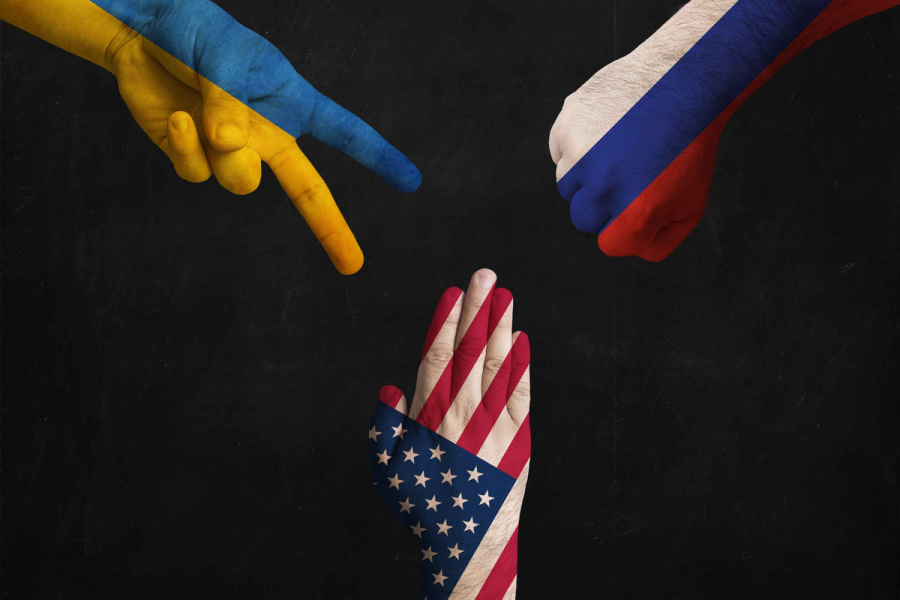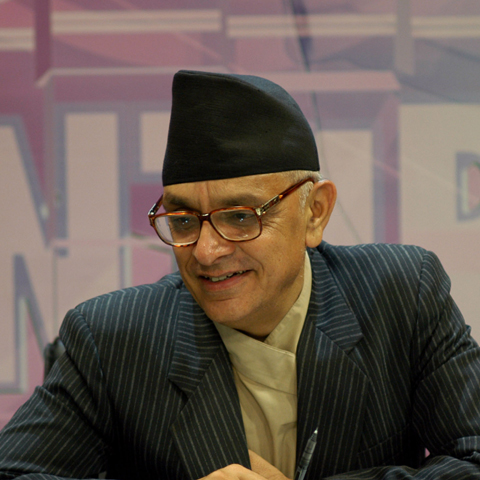Columns
The struggle for Ukraine
To comprehend the present condition, we have to go back to the 1980s and Gorbachev.
Prakash Chandra Lohani
The tension between Russians and Americans over Ukraine is rising. The sabre-rattling between the two countries continues, and the world watches this drama with awe and anxiety, hoping that diplomacy will help defuse the problem. The Russians have already massed over 100,000 troops along the Ukrainian border, and it is expected to swell further in the future. They claim that it is part of a military exercise within their own territory, but the general perception is that a Russian invasion of Ukraine is imminent within the next two months. In the meantime, the United States has warned that the West will impose serious sanctions against the Russians if an invasion of Ukraine takes place.
Promises of the past
While defusing the confrontation peacefully, it is necessary to understand why we have come to such a perilous situation. To comprehend the present Ukrainian condition, we have to go back to the 1980s with Mikhail Gorbachev as president of the then Union of Soviet Socialist Republics (USSR).
In the mid-1980s, Gorbachev introduced two new policies known as glasnost and perestroika to reform and strengthen the functioning of the communist political system and the productivity of the national economy. The regime now allowed some degree of public expression on politics and also new experiments towards a market economy. These innovations quickly led to further demands for more thoroughgoing changes in the whole political system that the regime was simply not able to manage within the framework of the values and norms of the communist party. Gorbachev's experiment in reforming the communist party had failed. The country faced political turmoil, and there was a rejection of the Marxist logic both inside the country and in regions within its sphere of influence
During the Cold War, the sphere of influence doctrine provided the conceptual framework in maintaining a workable equilibrium in relations between the two superpowers, the US and the Soviet Union. Under this structure, both superpowers accepted each other's sphere of influence and did not engage in any acts to seriously challenge it.
A politically weak Soviet Union in the late 1980s faced the Western powers to discuss the European security architecture that included the unification of the two Germanys. In the context of rising political tension inside the Soviet Union and the growing dissatisfaction of other Warsaw Pact nations, Gorbachev was in no position to refuse the unification proposal. In negotiating with the Americans on the European security architecture, the Soviets insisted that unified Germany remain outside the North Atlantic Treaty Organisation (NATO). The Americans and the Germans did not agree to it but assured the Soviets that the eastern expansion of NATO would not go beyond the German border.
After the fall of the Soviet Union and the emergence of Russia, NATO decided in 1997 to invite the Czech Republic, Hungary and Poland to be part of its defence umbrella. If there was an informal agreement against this in 1990, it was now violated. The new Russian state reacted against this expansion; Boris Yeltsin complained to US President Bill Clinton against the idea of NATO's expansion eastward. The current president of Russia, Vladimir Putin, also protested in 2010 that NATO expansion was against the assurance given in the past. Significantly, then-president Gorbachev had also claimed that NATO expansion was against the assurances given to him when he negotiated the treaty. On the other hand, the then American Secretary of State James Baker has maintained that assurances to limit eastward expansion were not part of the deal. Even NATO declared in 2014 that there was no commitment to limit its activities.
The new balance
The Russians have expressed their resentment against NATO expansion towards the east. They seem to view it as a violation and betrayal of the assurances given in the past at the highest level. In their perspective, the West took advantage of their political weakness and adopted a policy of eastward expansion of NATO ignoring the mutual understandings and Russian security interests. Apparently, this is no longer acceptable. Now that the Russian leadership feels militarily strong and politically stable, the agenda of European security has been put forward for negotiation and revision. To signal their determination on this issue, the Russians have moved troops to the Ukrainian border for a possible invasion or even a broader conflict in the region. The West is unwilling to accept the logic that NATO should face restrictions in admitting other states in its fold, let alone retreating to the 1990 status.
The two superpowers dominated the Cold War era, with the sphere of influence doctrine providing a loose framework for peace. That situation no longer exists because of three reasons. First, Russia is not the superpower it was, even though it retains impressive military technology and still harbours an overwhelming desire to be taken seriously as in the past. Second, as an economic power, Russia is diminished with a smaller GDP than Italy. Third, Russia's economy is characterised by what economists have labelled as a "limited access model" where top business elites (the famous oligarchs), the federal bureaucracy and security forces rule the country while politicians coordinate and maintain balance among the three parties and benefit in the process. It still remains a limited access structure for other groups; the result is democratic-authoritarian politics working hand in glove with the other three elements of the ruling class to distribute rents collected in the economy. The move to an "open access model" is thus thwarted, restricting competition and encouragement to innovation and labour productivity. The result has been the virtual stagnation of the national economy for almost a decade. In this context, confrontation with the West is viewed both from a national security perspective as well as a way to strengthen the legitimacy of the ruling elite in the face of a lagging economy.
Ultimately, the crisis in Ukraine reflects a fluid situation where normative conditions for stability have not been worked out among the existing and aspiring world powers for a new equilibrium in the international system. This reality makes the current situation in Ukraine volatile and unpredictable. Defining a new equilibrium is not easy because new realignments will take time to emerge. It could take another decade or so before this process takes shape. The Indo-Pacific strategy is already a beginning in this direction, even though it is unclear if its members share the same view on the evolving world order. Similarly, the role of the US as the "offshore balancer" in Southeast Asia concerning the new emerging superpower, China, will require new definitions and standards that may not be clear today.
For small nations like Nepal sandwiched between two great nations—China, the emerging superpower, and India, the desperately aspiring superpower—it is not going to be easy. This means that we skilfully remain sensitive to the security interests of both nations. In this process, unity, both inside and outside Parliament to strengthen the effectiveness and efficiency of the Nepali state to serve the interests of the common masses, emerges as the most important condition for success.




 10.12°C Kathmandu
10.12°C Kathmandu















